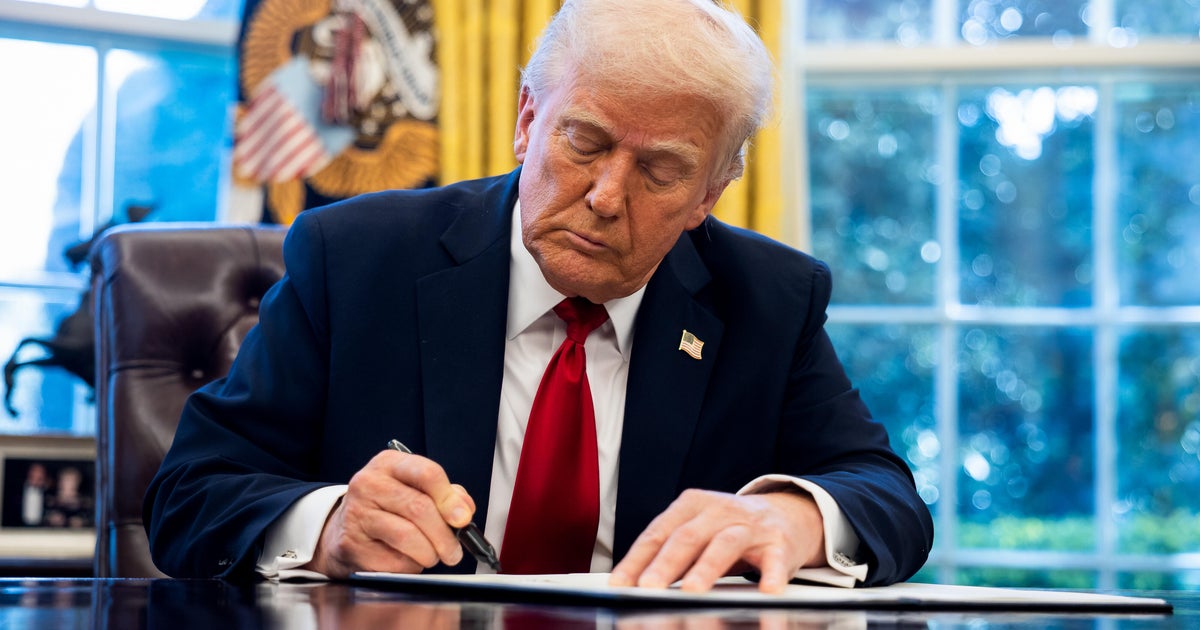Experts "not optimistic" about Trump plan to import drugs from Canada
The Trump administration this week announced a proposal to import prescription medication from Canada in an effort to address high drug prices — a perennial problem for American consumers. Yet while they applaud the policy's goal, experts say the plan to allow foreign drug imports is unlikely to significantly lower costs in the U.S.
"In theory, we do see that there is broad support for this idea because people in the U.S. pay more for drugs than people in other countries, so the logic seems to follow that you could get lower costs if you get drugs manufactured in other countries," said Juliette Cubanski, associate director of Medicare policy at the Kaiser Family Foundation. Yet political and practical barriers suggest "that the promise might not meet up with the reality of the proposal," she said.
The proposal offers two pathways to drug imports from Canada. One would allow U.S. states to import drugs from Canada through wholesalers and pharmacies. Under the second scenario, manufacturers themselves could import lower-cost drugs from foreign markets.
Other experts agree that the proposal won't likely produce savings for consumers.
"I would say we are not particularly optimistic this will result in meaningful savings to consumers," said Doug Hirsch, CEO of Good Rx, a company that helps Americans find savings on prescription medication.
"The headline sounds good, but there is no clear way for Canadian drugs to get to the U.S.," he said.
The plan, he said, would be the equivalent of a hospital applying bandages to the arm of a patient suffering from a headache.
So why aren't the proposals productive solutions to high drug prices in the U.S.? For one, the parties on which it depends are not obligated to participate.
Canada unlikely to cooperate
The Canadian government has the ability to negotiate drug prices with pharmaceutical companies and as a result, the country pays less than Americans for the same types of drugs.
Canada has already said it won't supply the U.S. with drugs, citing its own limited supply. More demand — from consumers in the U.S. — would drive up prices for Canadians.
"There is no reason why Canada will allow the U.S. to do this. They don't want to give up or jeopardize their lower prices by allowing the U.S. to import them, so Canada might try to limit pharmaceuticals or wholesalers from doing this," said Washington University law professor Rachel Sachs.
Cubanski agrees that "there are more downsides than upsides for the Canadian market" and Canada's non-participation would sideline the proposal.
"Trying to get more drugs from another country that buys drugs more cheaply is not a shortcut," said Erin Fox, adjunct associate professor of pharmacotherapy at the University of Utah.
No incentive for drug companies
Neither are the pharmaceutical companies incentivized to sell a greater supply of drugs at a lower price than that at which they're currently sold — and purchased.
Drug companies, on whose cooperation the plan also depends, have long opposed similar proposals to import lower-cost drugs to the U.S.
"I don't see wholehearted support from the industry for importation, whether it be through the first proposed rule pathway or through the second. I think this is an opportunity that may not be all it seems to be in terms of really delivering savings for patients," Cubanski said.
Costs associated with states adhering to Federal Drug Administration guidelines around drug safety are also likely to offset any potential savings to consumers.
"There is a very complex system around drug safety. It is not something to be blown off. It's really complicated, and it's interesting that the bill didn't even acknowledge that," Hirsch of Good RX said.
In other words, consumers shouldn't expect to go to the pharmacy and see lower prices anytime soon.
"This is not something the administration can reasonably point to and say by the 2020 elections patients will be able to obtain cheaper drugs through this program. That is not the timeline this is happening on," Sachs said.
It wouldn't lower the price of insulin
The U.S. prohibits biologic drugs, including insulin, from being imported, meaning that the proposal would not result in savings for diabetic patients who depend on the drug to maintain their blood sugar levels.
Generic versions of name brand drugs — on which many Americans rely — would not qualify either.
Roughly 90% of the 4 billion prescriptions filled annually in the U.S. are for generic drugs, according to Good RX. "So immediately, 90% of the audience is not seeing savings. This is not a panacea for the cost of health care in this country," Hirsch said.
Megan O'Reilly, VP of AARP Government Affairs, Federal Health and Family acknowledged the exclusions but suggested that importing drugs from Canada "could produce real savings for older Americans who take certain drugs."



